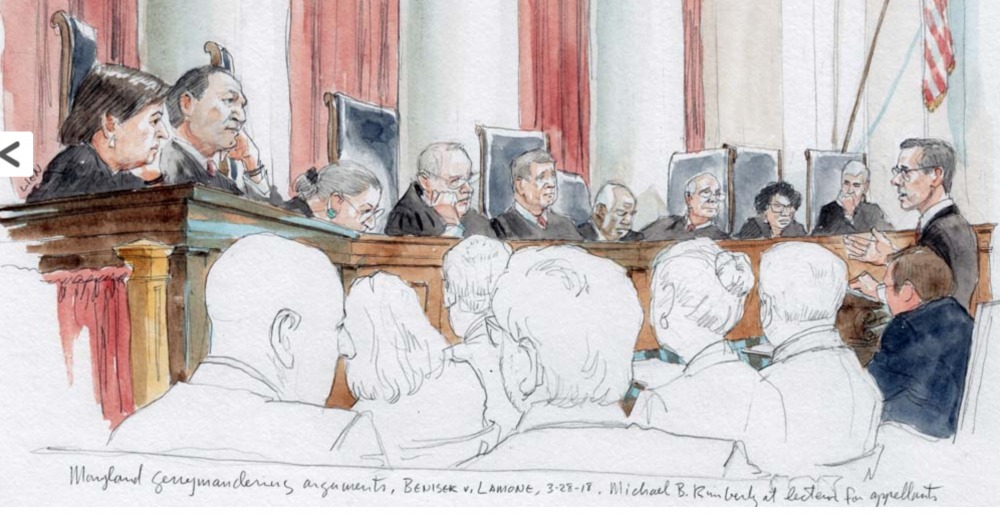Donald Trump’s nomination of federal judge Amy Coney Barrett to the U.S. Supreme Court, and the Senate vote for her Confirmation has faced huge backlash throughout the country. Starting from allegations of hypocrisy against the G.O.P to about 56% supporting confirmation after election, the Republican Party seemed to be blatantly attacked at almost every major TV network. Words like the “McConnell Rule”, “Honor her wish”, and “Merrick Garland” were trending across various platforms, nevertheless, here we are. ACB actually ended up on the Court.

The problem with a democratic form of government is that it most wholeheartedly represents all the people, even if we know they’re not right. People have predetermined mindsets in a variety of issues, and people seek guidance- in almost every branch of life. It might not be the government’s job to state how people live, but it most certainly is their job to steward people into the right direction. So, if two branches of government have been specifically built to represent the status quo, who are we to trust for change? The third branch: The Judiciary.
Built into the foundation of almost any constitution, the third branch of government is built as the independent, impartial guardian of humanity- designed to say to the people when something is right, and when something isn’t.
But this isn’t abnormal. The Supreme Court has been making policy for decades now. If we go all the way back to 1954, when the Court unanimously ruled in Brown v Board of Education that segregation of public schools violated the Equal Protection Clause of the Constitution, civil rights was still a dream. It was only ten years later that Lyndon Johnson signed the Civil Rights Act. But this isn’t alone- looking on to the 1970s, when Congress tried to steer through the country, the idea of equality between the sexes through the ERA, giving a legal standing to Gloria Steinem, Bella Abzug, Betty Friedan, and so many others fighting against gender inequality, the venture failed. Then why is gender discrimination illegal today? Because of precedent.
Reed v Reed, Weinberger v Weisenfeld, Frontiero v Richardson, Roe v Wade (now Planned Parenthood v Casey), U.S. v Virginia- these are the precedents upholding that sex discrimination exists and it harms not only women but also men. The society we live in today basks under the Court’s decisions- no law gives the LGBT community the right to marry, but Obergefell v Hodges does, no law protects the press as explicitly as does the precedent set by New York Times Co. v The United States. The courts remain the foundation of the USA, and no matter how much people hate it, it has now become the Courts’ job to set what the country is supposed to do.
And unlike what Amy Coney Barrett says, this doesn’t stop with her, it just gets more unpredictable. Barrett has been a crusader against abortion, been a part of a religious cult that despises the LGBT community, et al. Alongside Clarence Thomas, she could be one of the Court’s most conservative justices, which gives many politicians a taste of what her rulings might be when on the Court. As Lindsay Graham said, “This is the first time in American history that we’ve nominated a woman who is unashamedly pro-life and embraces her faith without apology, and she is going to the court.”
This lack of separation of Church and State is what many fear, because your God is no one’s except yours; the first amendment gives you the right to religious liberty not religious indoctrination.
But nothing is as black and white as it really seems. With Alito and Thomas criticizing Obergefell right after Justice Ginsburg’s death, marriage equality may come up before the Court again. Cases against Abortion rights are not going to stop so soon, Obamacare may die off, Environmental regulations may be reversed paving the way for nothing short of doom. So, with a 6-3 conservative supermajority on the Court, it is distinctly difficult to forecast what lies in the future: marches forward or leaps backward. But one thing is for sure- every decision that Barrett, along with all the others on the bench may cast, every concurrence she joins or dissent she writes- it will be heavily consequential for decades to come- be it to the dismay of the Liberals or the Conservatives.